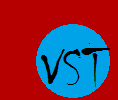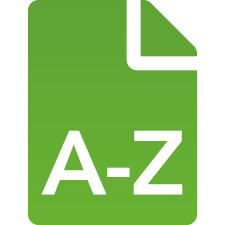HO
- Startpagina HO
- Algemene info HO
- Graduaatsopleidingen
- HBO5 Verpleegkunde
- Professionele bachelor
- Academische bachelor
- Ba-na-Ba
- Master
- Ma-na-Ma
- Postgraduaat
- Schakelprogramma's
- Studierendement
- Zoeken via alfabet
- Zoeken via belangstelling
- Zoeken via studiegebied
- Zoeken via schoolvakken
- Zoeken via instelling
- Zoeken via campussen
- Zoeken via provincie
- Zoeken via trefwoorden
- Zoeken via onderwijstaal
- Keuzetrajecten HO
- Flexibel studeren
- Functiebeperking en HO
- Recht op vrijstellingen?
- Zelftests
- Keuzerooster
- Buiten Vlaanderen
- International students
- Instellingen HO
- Bacheloropleidingen
- Leerkrediet
- Studentenhuizen
- SID-in's
- Studievoortgang
- Stoppen in HO
- Veranderen in HO
- Rapport schoolverlaters VDAB
- Deeltijds Kunstonderwijs
- Linken
- Downloads
- Moeilijke woorden
International Development (E) - Master
University of Kent
The MA in International Development seeks to contribute to a critical understanding of contemporary issues in development and provides practical tools for a future engagement.
It considers theoretical, practical and ethical issues by interrogating development discourses, objectives and effects, and by seeking to understand forms of inclusion/exclusion and intervention in societies.
Some issues covered are public-private partnerships, social entrepreneurship, trade and privatization, informal economies and finance, and technological initiatives.
The MA in International Development is offered jointly by the School of Politics and International Relations, the Kent Law School and the School of Economics to provide students with an inter-disciplinary approach to development and to allow them to specialize in their field of interest, such as development economics, development and migration, development and conflict, or human rights.
Students can choose between an economic stream and a politico-legal stream, complemented by a wealth of elective modules from various departments.
BSIS attracts an exceptionally diverse and active student body that shares an enthusiasm for engagement in global affairs.
Our students come from Europe, Africa, Asia and the Americas; many have spent extended periods abroad and/or worked for development institutions, a few have just finished their undergraduate studies.
An important forum is the International Development Group, which meets regularly to discuss personal experiences, debate issues in development, invite guest speakers, attend conferences and workshops, and also to organize conferences.
After their studies at BSIS, our students engage in careers in international affairs, including international organizations, non-governmental organizations and international business across the globe, from Afghanistan to Zimbabwe.
The development studies program is suitable for students seeking to understand the field of international development as well as for practitioners who have already substantive experience.
It provides conceptual tools and practical skills for a variety of careers in international affairs.
Studiepunten
60-72
International Development (E) - Master |
Algemene info
University of Kent
The MA in International Development seeks to contribute to a critical understanding of contemporary issues in development and provides practical tools for a future engagement.
It considers theoretical, practical and ethical issues by interrogating development discourses, objectives and effects, and by seeking to understand forms of inclusion/exclusion and intervention in societies.
Some issues covered are public-private partnerships, social entrepreneurship, trade and privatization, informal economies and finance, and technological initiatives.
The MA in International Development is offered jointly by the School of Politics and International Relations, the Kent Law School and the School of Economics to provide students with an inter-disciplinary approach to development and to allow them to specialize in their field of interest, such as development economics, development and migration, development and conflict, or human rights.
Students can choose between an economic stream and a politico-legal stream, complemented by a wealth of elective modules from various departments.
BSIS attracts an exceptionally diverse and active student body that shares an enthusiasm for engagement in global affairs.
Our students come from Europe, Africa, Asia and the Americas; many have spent extended periods abroad and/or worked for development institutions, a few have just finished their undergraduate studies.
An important forum is the International Development Group, which meets regularly to discuss personal experiences, debate issues in development, invite guest speakers, attend conferences and workshops, and also to organize conferences.
After their studies at BSIS, our students engage in careers in international affairs, including international organizations, non-governmental organizations and international business across the globe, from Afghanistan to Zimbabwe.
The development studies program is suitable for students seeking to understand the field of international development as well as for practitioners who have already substantive experience.
It provides conceptual tools and practical skills for a variety of careers in international affairs.
Studiepunten
60-72
Bijzondere toelatingsvoorwaarden
All applicants for the MA and LLM programmes at the School should possess a Bachelor degree or equivalent.
We accept a wide range of subjects for entry and you do not need to have necessarily studied Political Science or law previously.
Typical first degrees of our students include Economics, History, Classics, Languages, Philosophy, Geography & Psychology (among others).
TOELATINGSVOORWAARDEN
Het bezit van de graad van bachelor, verworven in een academische gerichte bacheloropleiding, geeft recht op een rechtstreekse toegang tot minstens één masteropleiding.
Andere manieren om van een bachelor door te stromen naar een master:
- na een professioneel gerichte bacheloropleiding dient er een schakelprogramma te worden gevolgd.
- na een academische bacheloropleiding met een andere kwalificatie dient er eventueel een voorbereidingsprogramma te worden gevolgd.
Extra taalvoorwaarden voor internationale studenten
De onderwijsinstellingen kunnen het slagen in een examen in de onderwijstaal opleggen als toelatingseis voor houders van een buitenlands diploma.
Situering
Opleiding: International Development (E)
Studieniveau: Master - HO
Studiegebied: Gecombineerde studiegebieden
Belangstellingsdomeinen: Overtuigen-besturen, Sociale wetenschappen,
Schoolvakken SO: Sociale wetenschappen,
Vervolgopleidingen
Na een masteropleiding kan je, binnen het hoger onderwijs, verder studeren in:
een master-na-master
Binnen dit studiegebied worden deze Ma-na-Ma's georganiseerd:
Let op!
Alle Ma-na-Ma’s van dit studiegebied zijn vermeld, maar dit betekent niet dat al deze
opleidingen toegankelijk zijn. Er zijn waarschijnlijk andere Ma-na-Ma's waarin je mag starten.
Raadpleeg de toelatingsvoorwaarden
per Ma-na-Ma.
een postgraduaat
De toelating tot een postgraduaat verschilt per opleiding. Raadpleeg de toelatingsvoorwaarden per opleiding.
een bachelor-na-bachelor
Verder studeren kan ook in een Ba-na-Ba. De toelatingsvoorwaarden kunnen verschillen per opleiding.
een lerarenopleiding
Na een masteropleiding kan je via een verkorte educatieve masteropleiding leraar worden. Deze opleiding neemt 60 studiepunten in beslag en wordt georganiseerd door een universiteit. Meer info.
| Gegevens bijgewerkt tot 07-02-2017 |
International Development (E) - Master |
Algemene info
University of Kent
The MA in International Development seeks to contribute to a critical understanding of contemporary issues in development and provides practical tools for a future engagement.
It considers theoretical, practical and ethical issues by interrogating development discourses, objectives and effects, and by seeking to understand forms of inclusion/exclusion and intervention in societies.
Some issues covered are public-private partnerships, social entrepreneurship, trade and privatization, informal economies and finance, and technological initiatives.
The MA in International Development is offered jointly by the School of Politics and International Relations, the Kent Law School and the School of Economics to provide students with an inter-disciplinary approach to development and to allow them to specialize in their field of interest, such as development economics, development and migration, development and conflict, or human rights.
Students can choose between an economic stream and a politico-legal stream, complemented by a wealth of elective modules from various departments.
BSIS attracts an exceptionally diverse and active student body that shares an enthusiasm for engagement in global affairs.
Our students come from Europe, Africa, Asia and the Americas; many have spent extended periods abroad and/or worked for development institutions, a few have just finished their undergraduate studies.
An important forum is the International Development Group, which meets regularly to discuss personal experiences, debate issues in development, invite guest speakers, attend conferences and workshops, and also to organize conferences.
After their studies at BSIS, our students engage in careers in international affairs, including international organizations, non-governmental organizations and international business across the globe, from Afghanistan to Zimbabwe.
The development studies program is suitable for students seeking to understand the field of international development as well as for practitioners who have already substantive experience.
It provides conceptual tools and practical skills for a variety of careers in international affairs.
Studiepunten
60-72
Bijzondere toelatingsvoorwaarden
All applicants for the MA and LLM programmes at the School should possess a Bachelor degree or equivalent.
We accept a wide range of subjects for entry and you do not need to have necessarily studied Political Science or law previously.
Typical first degrees of our students include Economics, History, Classics, Languages, Philosophy, Geography & Psychology (among others).
TOELATINGSVOORWAARDEN
Het bezit van de graad van bachelor, verworven in een academische gerichte bacheloropleiding, geeft recht op een rechtstreekse toegang tot minstens één masteropleiding.
Andere manieren om van een bachelor door te stromen naar een master:
- na een professioneel gerichte bacheloropleiding dient er een schakelprogramma te worden gevolgd.
- na een academische bacheloropleiding met een andere kwalificatie dient er eventueel een voorbereidingsprogramma te worden gevolgd.
Extra taalvoorwaarden voor internationale studenten
De onderwijsinstellingen kunnen het slagen in een examen in de onderwijstaal opleggen als toelatingseis voor houders van een buitenlands diploma.
Situering
Opleiding: International Development (E)
Studieniveau: Master - HO
Studiegebied: Gecombineerde studiegebieden
Belangstellingsdomeinen: Overtuigen-besturen, Sociale wetenschappen,
Schoolvakken SO: Sociale wetenschappen,
Vervolgopleidingen
Na een masteropleiding kan je, binnen het hoger onderwijs, verder studeren in:
een master-na-master
Binnen dit studiegebied worden deze Ma-na-Ma's georganiseerd:
Let op!
Alle Ma-na-Ma’s van dit studiegebied zijn vermeld, maar dit betekent niet dat al deze
opleidingen toegankelijk zijn. Er zijn waarschijnlijk andere Ma-na-Ma's waarin je mag starten.
Raadpleeg de toelatingsvoorwaarden
per Ma-na-Ma.
een postgraduaat
De toelating tot een postgraduaat verschilt per opleiding. Raadpleeg de toelatingsvoorwaarden per opleiding.
een bachelor-na-bachelor
Verder studeren kan ook in een Ba-na-Ba. De toelatingsvoorwaarden kunnen verschillen per opleiding.
een lerarenopleiding
Na een masteropleiding kan je via een verkorte educatieve masteropleiding leraar worden. Deze opleiding neemt 60 studiepunten in beslag en wordt georganiseerd door een universiteit. Meer info.
| Gegevens bijgewerkt tot 07-02-2017 |











